Colloquium Lecturers and Advisers
Tuesday, September 4
First Day of Class - EPIIC Orientation
Thursday, September 6
Why People Move and Where They Move
Lecturer: Professor Williams
Tuesday, September 11
International Migration before 1945
Lecturer: Professor Williams
Thursday, September 13
Political Violence and Conflict
Lecturer: Professor Williams
Tuesday, September 18
Children and Migration
Guest Lecturer: Dr. Andrea Capachietti
Dr. Andrea Capachietti is a Humanitarian Aid consultant and university lecturer on global health and refugee resettlement issues with particular focus on women’s rights and child protection. She is a graduate of the Harvard Program in Refugee Trauma’s Global Mental Health: Trauma and Recovery training program, as well as a participant in the Women and Power: Leadership in a New World executive education program at the Kennedy School of Government. Dr. Capachietti began her international career as the Director of Medical Programs and Education for the Czechoslovak Institute of Los Angeles, working in conjunction with the Olga Havel Foundation in the Czech Republic as that country emerged as a democratic society. The organization developed cultural exchange programs between Los Angeles and Prague, and provided medical professionals with journals, supplies and educational materials. This work creating cultural exchanges took her to Eastern and Central Europe as a liaison and later to the Balkans. Following the Balkan Wars, she worked with several post-conflict programs serving women and children, many of whom were unaccompanied minors. These programs advocated for basic health care and housing needs during the post-war period. Her work as a lecturer and consultant to non-governmental organizations (NGO’s) and U.N. agencies requires the constant monitoring of important geopolitical, international health and policy issues. Since 1990, she has been active both in the international field and at home. She has performed needs assessments for medical facilities requesting humanitarian aid and relief assistance, which took her to countries in conflict. She also assisted with medical evacuations and with tracing programs for family reunification. She continues to advocate on behalf of the victims of human rights abuses, particularly women and children, and her current area of research and study is the long-term effects of war and armed conflict on children. She has presented her research on this subject internationally. Dr. Capachietti has worked with international NGOS to train emerging female leaders in countries in conflict, as well as supporting local organizations that meet the needs of women and children in developing economies. She continues to work in Haiti on the recovery efforts post-earthquake, and in Africa to assess the needs of several pediatric and women’s clinics. In both countries, she provides educational materials and training modules for local health care providers. As an academic, she is involved in the education and professional development of students pursuing international humanitarian work. She mentors graduate students in the fields of social work, public policy, and global health on managing the complexities of humanitarian emergencies. She has also created a lecture series for students concentrating on the legal principles guiding humanitarian assistance, the need for creating strategic partnerships, and the importance of understanding the geopolitical climate for effective relief work. An active member in both the academic and civic elements of International Relations within the city of Los Angeles, she has lectured on issues of public policy, global health and gender-based violence for undergraduate and graduate programs all over the country.
Thursday, September 20
Impact on Countries of Destination
Lecturer: Professor Williams
Tuesday, September 25
Impact on Countries of Origin
Guest Lecturer: TBD
Thursday, September 27
IN-CLASS EXAM
Saturday-Sunday, September 29-30
Weekend Immersion
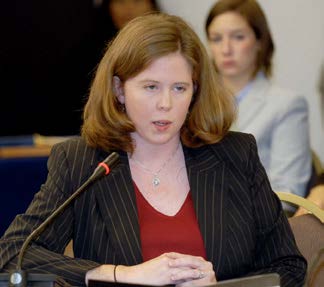 Guest Lecturer: Kerri Talbot
Guest Lecturer: Kerri Talbot
Kerri Talbot is Director of Federal Advocacy at the Immigration Hub where she works with non-profit organizations and Congress to promote the fair treatment of immigrants and refugees. The Immigration Hub was formed to help coordinate rapid response legislative and communications work on immigration and refugee issues. The organization provides strategic support to national immigration organizations and Congress in support of immigrant rights.
She was previously a Partner at the Veng Group, a government relations firm, where she assisted non-profit organizations and businesses including the National Immigration Law Center, Deloitte, Human Rights First, and Women’s Refugee Commission with immigration policy analysis, advocacy, communications and coalition-building.
From 2009-2014, Kerri served as Chief Counsel for U.S. Senator Robert Menendez of New Jersey. She staffed the Senator on the Gang of 8 and assisted in writing the comprehensive immigration reform bill which passed the Senate in 2013.
Prior to her time on the hill, Kerri served as Associate Director of Advocacy at the American Immigration Lawyers Association, the national association of over 14,000 immigration attorneys, where she advocated with Congress and the Administration on immigration policy issues. She also served as Director of Policy and Planning for the Rights Working Group, a coalition of civil rights and human rights organizations dedicated to the fair treatment of immigrants and refugees. Kerri was also Managing Attorney of Break the Chain Campaign at the Institute for Policy Studies where she represented trafficking victims and asylum seekers in their legal proceedings.
Tuesday, October 2
Natural Disasters and Climate Change
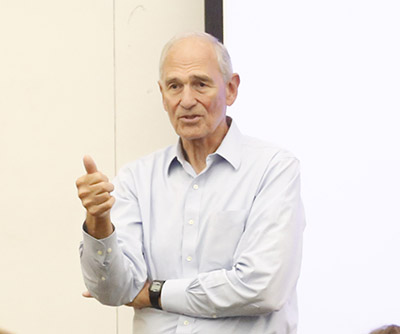 Guest Lecturer: Professor William R. Moomaw
Guest Lecturer: Professor William R. Moomaw
William Moomaw is Professor Emeritus of International Environmental Policy at The Fletcher School of Law and Diplomacy, Tufts University, where he was the founding director of the Center for International Environment and Resource Policy, the Tufts Climate Initiative and co-founder of the Global Development and Environment Institute. He graduated from Williams in 1959, and is a physical chemist with a PhD from MIT. He works to translate science and technology into policy terms using interdisciplinary tools. His major publications are on climate change, energy policy, nitrogen pollution, forestry financing and management and on theoretical topics such as the Environmental Kuznets Curve. He was a coordinating lead author of the 2001 Intergovernmental Panel on Climate Change chapter on greenhouse gas emissions reduction, and for the special report on renewable energy due in 2010. He was a lead author of three other IPCC reports (1995, 2005 and 2007). The work of the IPCC was recognized with the 2007 Nobel Peace Prize. He also was an author for the Millennium Ecosystem Assessment on nitrogen and serves on the Integrated Nitrogen Committee of the EPA Science Advisory board. He was the first director of the Climate, Energy and Pollution program at the World Resources Institute, and directed the Center for Environmental Studies at Williams College where he held an endowed chair in chemistry. He has received Teaching Awards at both Williams and at The Fletcher School, and an Honorary Doctorate from the University of Belgrade for his work on sustainable development. As an AAAS Congressional Science Fellow, he worked on legislation that eliminated American use of CFCs in spray cans to protect the ozone layer, and also worked on energy and forestry legislation. Dr. Moomaw currently serves on the Board of Directors of The Climate Group, Clean Air-Cool Planet (which he co-founded), Earthwatch Institute, Center for Ecological Technologies and the Consensus Building Institute. He has facilitated sessions with negotiators of international treaties. He and his wife, Margot have just completed a highly efficient zero net energy home in Williamstown that uses no fossil fuels. It is one of a handful of such homes to be built in northern climate zones, and its performance is being monitored for performance for the U.S. National Renewable Energy Laboratory.
Thursday, October 4
Migration and Human Rights
Thursday, October 11
Challenges of Integration for Diverse Societies
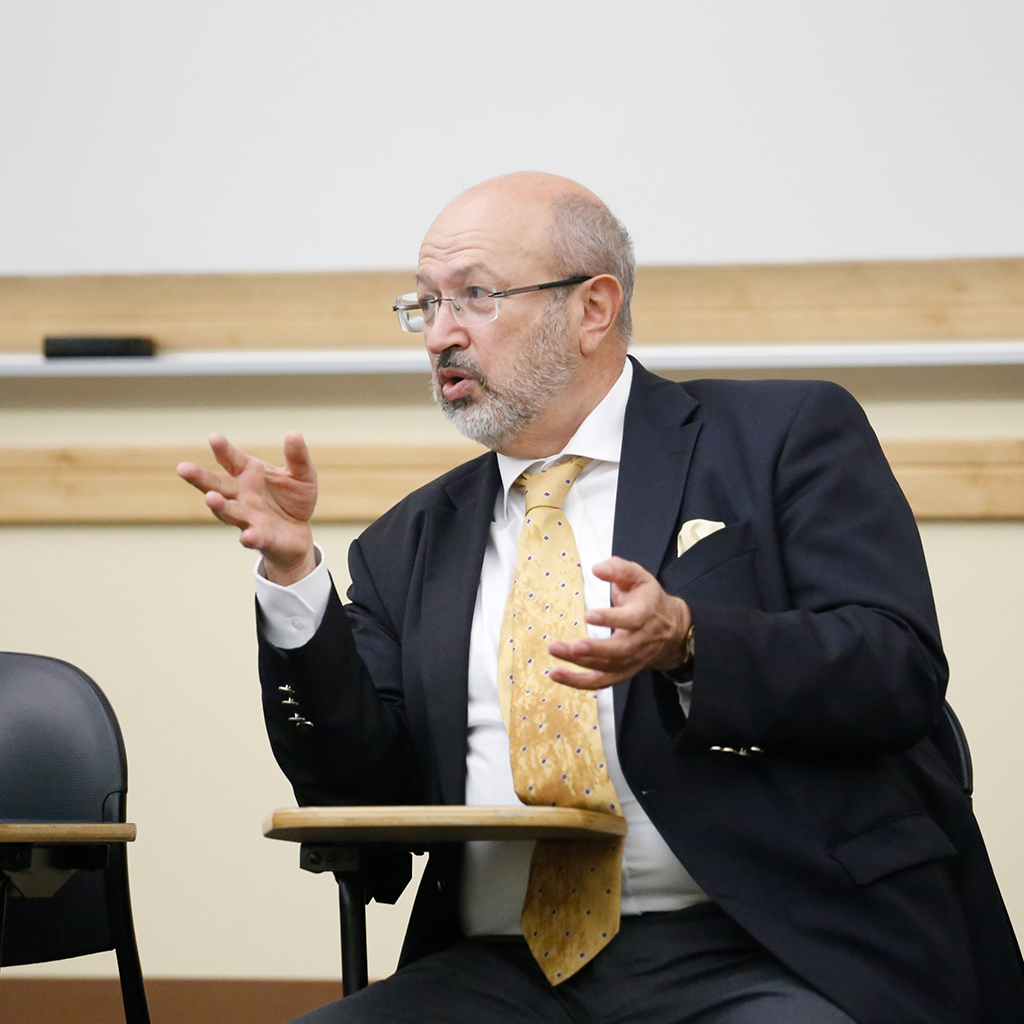 Guest Lecturer: Amb. Lamberto Zannier
Guest Lecturer: Amb. Lamberto Zannier
Zannier is the OSCE High Commissioner on National Minorities and the former OSCE Secretary-General, 2011-17. A career diplomat, Amb. Zannier joined the Italian Foreign Ministry in 1978. Before becoming Secretary-General of the Organization for Security and Co-operation in Europe (OSCE), he served as the UN Special Representative for Kosovo and Head of the UN Interim Administration Mission in Kosovo (UNMIK). He also was the director of the Conflict Prevention Centre of the OSCE, where he focused on political-military issues, as well as crisis management, and was responsible for managing the OSCE’s field operations. He has been the representative of Italy to the Executive Council of the Organization for the Prohibition of Chemical Weapons in The Hague and the chairperson of the negotiations on the adaptation of the Treaty on Conventional Armed Forces in Europe. He also worked as the head of Disarmament, Arms Control and Cooperative Security at NATO.
Tuesday, October 16
Securitization of Migration & Migration in the Americas
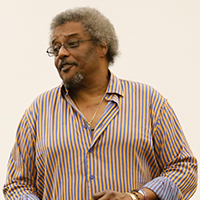 Guest Lecturer: Professor H. Adlai Murdoch
Guest Lecturer: Professor H. Adlai Murdoch
Murdoch is the author of Creole Identity in the French Caribbean Novel and of Creolizing the Metropole: Migratory Metropolitan Caribbean Identities in Literature and Film, and the co-editor of Postcolonial Theory and Francophone Literary Studies, Francophone Cultures and Geographies of Identity, and Metropolitan Mosaics and Melting-Pots-Paris and Montreal in Francophone Literatures. His articles have appeared in Callaloo, Yale French Studies, Research in African Literatures, Francophone Postcolonial Studies, The Journal of Contemporary French Studies (Sites), L'Esprit créateur, the Journal of Romance Studies, the International Journal of Francophone Studies, and American Literary History.
Thursday, October 18
Immigration and Management of Borders
Lecturer: Professor Williams
Tuesday, October 23
Cities and Migration
Lecturer: Professor Williams
Thursday, October 25
Voluntary Return and Reintegration
Lecturer: Professor Williams
Tuesday, October 30
Case Study: Hungary
 Guest Lecturer: Zoltan Fehrer
Guest Lecturer: Zoltan Fehrer
Zoltan Feher is a former diplomat from Hungary and a Ph.D. candidate in International Relations at The Fletcher School of Law and Diplomacy at Tufts University. He currently works as a Research Fellow at the Center for Strategic Studies at The Fletcher School, and as a foreign policy and geopolitical risk expert with Duco Advisors. Between 2002 and 2015, he worked as a career diplomat, serving as foreign policy analyst at the Hungarian embassy in Washington DC and most recently as Hungary’s Deputy Ambassador and Chargé d’Affaires in Turkey. He holds a Law degree and a Master of Arts in Political Science from Hungarian universities, and a Master in Public Administration from Harvard University. He has taught International Relations at the Harvard Summer School and at Hungarian universities, and served as a teaching assistant to Joseph Nye at the Harvard Kennedy School. He has been the recipient of the Kellner Scholarship (Bard College), the Vali Scholarship (Harvard Kennedy School), as well as the Bradley Fellowship, Provost Fellowship and Graduate Competitive Initiative Fellowship (Tufts University). He has studied with Stephen Walt, Robert Pfaltzgraff, Richard Shultz, Niall Ferguson and R. Nicholas Burns. His PhD dissertation focuses on “the geopolitics of grand strategy,” more specifically on how the United States is addressing challenges from great-power competitors Russia and China.
Thursday, November 1
The Political Economy of Migration
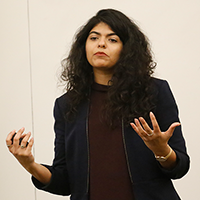 Guest Lecturer: Professor Noora Lori
Guest Lecturer: Professor Noora Lori
Noora Lori’s research broadly focuses on the political economy of migration, the development of security institutions and international migration control, and the establishment and growth of national identity systems. She studies temporary migration schemes and racial hierarchies in comparative perspective. Regionally, her work examines the shifting population movements accompanying state formation in the Persian Gulf, expanding the study of Middle East politics to include historic and new connections with East Africa and the Indian subcontinent. Lori’s forthcoming book, Offshore Citizens: Permanent “Temporary” Status, explains why (and how) states make people wait for citizenship. She argues that the strategic use of delays in the issuance of identity papers is a key way that states manage scarcity and privilege subnational groups. This work draws from her dissertation on citizenship policies in the United Arab Emirates, which was awarded the Best Dissertation Award by the Migration and Citizenship section of the American Political Science Association in 2014. Lori has published articles in the Asian and Pacific Migration Journal, the Journal of Politics & Society, and for the Institut français des relations internationals (IFRI). Since joining BU, she received the Gitner Family Prize for Faculty Excellence (2014) and the CAS Templeton Award for Excellence in Student Advising (2015). Prior to joining the faculty, she was an Academy Scholar at the Harvard Academy for International and Area Studies. She was also a pre-doctoral fellow at the International Security Program and the Dubai Initiative of the Harvard Kennedy School of Government. She has previously taught at the Dubai School of Government where she was an adjunct faculty member and visiting scholar, and at the University of Cambridge for the Heritage Summers program. Her research has been funded by the ACLS/Mellon Foundation and the ZEIT-Stiftung “Settling into Motion” Fellowship. Professor Lori is the Founding Director of the Pardee School Initiative on Forced Migration and Human Trafficking, which she co-directs with Professor Schilde. She is the chair of the scholarly advisory board of the Boston Consortium for Arab Region Studies and on the steering committee of the Inter-University Committee for International Migration.
Tuesday, November 6
Intersection of Religion, Security, and Migration
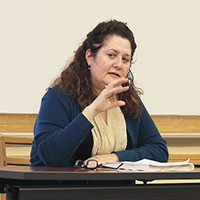 Guest Lecturer: Elizabeth Prodromou
Guest Lecturer: Elizabeth Prodromou
Dr. Elizabeth H. Prodromou is a Visiting Associate Professor of Conflict Resolution, teaching in the Program in International Negotiation and Conflict Resolution, at The Fletcher School of Law and Diplomacy. She is a Non-Resident Senior Fellow in National Security and International Policy at the Center for American Progress (Washington, DC) and a Non-Resident Fellow at The Hedayah International Center of Excellence for Countering Violent Extremism (Abu Dhabi). Before coming to Fletcher, Prodromou served a diplomatic appointment as Vice Chair and Commissioner on the U.S. Commission on International Religious Freedom (2004-2012), and she was a member of the U.S. Secretary of State’s Religion & Foreign Policy Working Group (2011-2015). Her research interests focus on the intersection of religion, democracy, and security, with particular expertise on religion and geopolitics in the Near East and Southeastern Europe. Published widely in scholarly and policy journals and media, she has been involved in advisory work for international and non-governmental organizations on international religious freedom. Her current research focuses on migration, religion, and security in Europe and Eurasia, as well as on response strategies of religious institutions to state repression. Prodromou was awarded a Distinguished Service Award by the Tufts University Alumni Association in 2008. She is co-editor of and contributor to Eastern Orthodox Christianity and American Higher Education (2016) and Thinking Through Faith: New Perspectives from Orthodox Christian Scholars (2008).
Thursday, November 8
MID-TERM EXAM
Tuesday, November 13
Migration in Sub-Saharan Africa
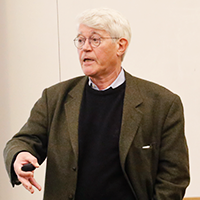 Guest Lecturer: Professor Hugh Roberts
Guest Lecturer: Professor Hugh Roberts
He is the Edward Keller Professor of North African and Middle Eastern History at Tufts University. After graduating from Oxford, he undertook doctoral research on Algeria, spending a year teaching English in Bouïra in the Kabylia region and another year as a French Government Scholar at the University of Aix-Marseille while carrying out extensive fieldwork in Algeria in the long vacations. He taught politics and political history in the School of Development Studies at the University of East Anglia from 1976 to 1988 and then worked in London as an independent scholar and free-lance writer in order to be able to follow the developing crisis in Algeria full time. In 1997 he returned to academic life as a Senior Research Fellow at the London School of Economics, a post he held till 2002. In 2001 he moved to Cairo where he lived from 2001 to 2012, continuing his work on Algeria, conducting additional research on Egyptian political history and the history of Islamism in North Africa and working for the International Crisis Group as Director of its North Africa Project in 2002-2007 and again from January to July 2011. He has also taught at the Institute of Development Studies at the University of Sussex (1986-7), the University of California, Berkeley (spring semester 1996) and the School of Oriental and African Studies at the University of London (1997-8).
Thursday, November 15
Migration in Europe
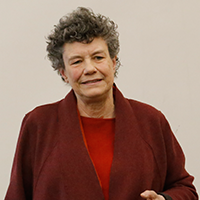 Guest Lecturer Professor Anna Hardman
Guest Lecturer Professor Anna Hardman
Dr. Hardman has taught at Tufts University since 1995. Her research focuses on urban economics (regulation and the informal sector in housing markets in developing countries, the development and provision of services in peri-urban areas, and neighborhood income distribution) and on migration (remittances and the impact of immigration on housing markets in migrants' home and host communities). She has published articles in the Journal of Housing Economics, The Scandinavian Journal of Economics, and Regional Science and Urban Economics, and is co-author of a book on labor migration in Europe and the U.S. As a member of the Inter-University Committee on International Migration of the MIT Center for International Studies, she is currently organizing a workshop at MIT on the economics of forced migration. From 1999 to 2004 she was Visiting Lecturer in Economic Development Planning in the Department of Urban Studies and Planning at the Massachusetts Institute of Technology. She has worked as a consultant to international organizations including USAID, the OECD, and the World Bank. Before coming to Tufts, she served as assistant professor of urban studies and economics at Virginia Polytechnic Institute and State University.
Tuesday, November 20
Migration in Southeast Asia
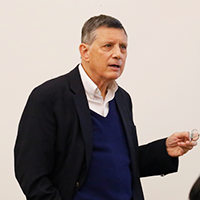 Guest Lecturer: Professor David Dapice
Guest Lecturer: Professor David Dapice
David Dapice is a leading expert on the economic development of Southeast Asia and has worked extensively in Indonesia, Thailand, Cambodia, Myanmar, and Vietnam. He was principal advisor to the Indonesian Ministry of Finance when this country enjoyed its period of rapid growth. He is Professor Emeritus of Economics at Tufts University, where he served as Chair of the Economics Department. He has taken leave at the World Bank (as a Brookings Policy Fellow in 1976-77), the Rockefeller Foundation (1980-81), and the Harvard Institute for International Development (1990-91). He has studied the Vietnamese economy since the late 1980s, with a particular emphasis on macroeconomic issues, public investment policy, and regional development. Dapice’s expertise on matters of economic policy is regularly sought by the Vietnamese government. He is authored or co-authored a number of policy studies including Choosing Success: The Lessons of East and Southeast Asia and Vietnam’s Future. He is a member of the IGL External Advisory Board and had been Faculty Chair of the IGL’s Faculty Committee.
Thursday, November 22
No Class: Thanksgiving – HAPPY TURKEY DAY!
Tuesday, November 27
Weapons of Mass Migration
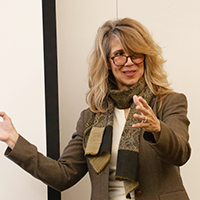 Guest Lecturer: Professor Kelly M. Greenhill
Guest Lecturer: Professor Kelly M. Greenhill
Kelly Greenhill is Associate Professor of Political Science and Director of the International Relations Program at Tufts University. Her research focuses on foreign and defense policy; the politics of information; the use of military force; and what are frequently called "new security challenges," including civil wars, (counter-) insurgencies, the use of migration as a weapon, and international crime as a challenge to domestic governance. Outside of the Department, Greenhill serves as Research Fellow and as Chair of the Conflict, Security and Public Policy Working Group at Harvard University's Belfer Center and as Associate Editor of the journal International Security. Greenhill is author of Weapons of Mass Migration: Forced Displacement, Coercion and Foreign Policy (Cornell Studies in Security Affairs), which won the 2011 International Studies Association's Best Book of the Year Award; and co-author and co-editor (with P. Andreas) of Sex, Drugs and Body Counts: The Politics of Numbers in Global Crime and Conflict (Cornell University Press); (with R. Art) of the eighth edition of The Use of Force: Military Power and International Politics (R&L); and (with P. Krause) of Coercion: The Power to Hurt in International Politics (Oxford University Press, in press). Her research has also appeared in a variety of other venues, including the journals International Security, International Studies Quarterly, Security Studies, Civil Wars, European Law Journal and International Migration; media outlets such as the New York Times, the Los Angeles Times, Foreign Affairs and the British Broadcasting Company; and in briefs prepared for argument before the U.S. Supreme Court and for use by other organs of the U.S. government. She is currently completing a new book, a cross-national study that explores why, when, and under what conditions, "extra-factual" sources of political information—such as rumors, conspiracy theories, myths and propaganda—materially influence the development and conduct of states' foreign and defense policies. The book is provisionally entitled Fear and Present Danger: Extra-factual Sources of Threat Conception and Proliferation. Greenhill's research has been supported by the National Endowment for the Humanities (NEH), the Social Science Research Council, the MacArthur Foundation, the Mellon Foundation, the Eisenhower Foundation and the Neubauer Foundation. In October 2017, it was announced that Greenhill was chosen as winner of the 2018 ISSS Emerging Scholar Award (to be bestowed in April 2018). Outside of academia, Greenhill has served as a consultant to the Ford Foundation, the World Bank and the United Nations High Commissioner for Refugees (UNHCR); as a defense program analyst for the U.S. Department of Defense; and as an economic policy intern in the Office of then Senator John F. Kerry. She sits on the editorial boards of Sage Publications and of the journals Security Studies, the Journal of Global Security Studies and the Texas National Security Review. Before coming to Tufts, Greenhill held pre- or post-doctoral fellowships at Harvard University's Olin Institute for Strategic Studies and Belfer Center, at Stanford University's Center for International Security and Cooperation, and at Columbia University's Saltzman Institute of War and Peace Studies.
Thursday, November 29
Migration in Latin America
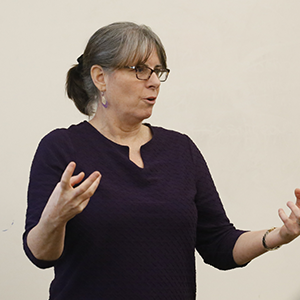 Guest Lecturer: Professor Katrina Burgess
Guest Lecturer: Professor Katrina Burgess
Katrina Burgess is Associate Professor of Political Economy at The Fletcher School of Law and Diplomacy at Tufts University. Before joining The Fletcher School, she taught at Syracuse (the Maxwell School), Brown, UCLA, and the Autonomous Technological Institute of Mexico (ITAM). She is author of Parties and Unions in the New Global Economy, which won the 2006 Outstanding Book Award for the best publication on labor issues granted by the Section on Labor Studies and Class Relations of the Latin American Studies Association, and co-editor with Abraham F. Lowenthal of The California-Mexico Connection. She has also published numerous book chapters, as well as articles in World Politics, Latin American Politics & Society, Studies in Comparative International Development, South European Politics and Society, Comparative Political Studies, Politica y gobierno, and International Studies Review. Her current project addresses the impact of migration and remittances on the quality of democracy in developing countries. She has also served as Assistant Director of the U.S.-Mexico Project at the Overseas Development Council in Washington, D.C. and Associate Director of the California-Mexico Project at USC in Los Angeles.
Tuesday, December 4
Health and Migration
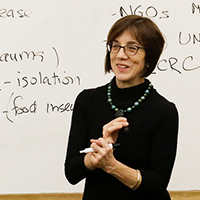 Guest Lecturer: Susannah Sirkin
Guest Lecturer: Susannah Sirkin
Susannah Sirkin is Director of International Policy and Partnerships/Senior Advisor for Physicians for Human Rights and Senior Fellow at the Carr Center for Human Rights at the Kennedy School at Harvard University. She oversees PHR’s international policy engagement, including their work with the United Nations, domestic and international justice systems, and human rights coalitions. She is also responsible for managing and multiplying PHR’s strategic partnerships globally, expanding volunteers from the medical and scientific community, and increasing partnerships with NGOs, medical institutions, and other relationships that can enhance PHR’s effectiveness and grow the field of human rights activists. Ms Sirkin joined PHR’s staff in 1987, shortly after its founding. She serves as a senior advisor across all areas, particularly PHR’s work to stop sexual violence in conflict zones – an initiative she created in 2011. In addition, Ms Sirkin is a past recipient of the Dr Jean Mayer Global Citizenship Award from the Institute for Global Leadership at Tufts University and has spoken at Tufts on multiple occasions.
Thursday, December 6
A Global Compact on Migration
Lecturer: Professor Williams
Wednesday, December 19
FINAL EXAM
Thursday, January 17
EPIIC Reorientation
Tuesday, January 22
Migration in Sub-Saharan Africa
Lecturer: Professor Williams
Thursday, January 24
Modes of Migration
Lecturer: Professor Williams
Tuesday, January 29
Symposium Prep/Committee Work
Thursday, January 31
Symposium Prep/Committee Work
Tuesday, February 5
Smugglers and Saviors
Lecturer: Professor Williams
Thursday, February 7
Migration and the Media
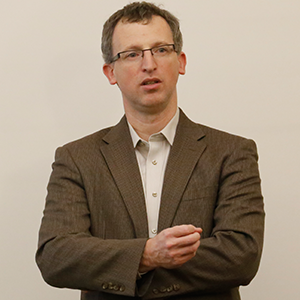 Guest Lecturer: Professor Scott Blinder
Guest Lecturer: Professor Scott Blinder
Scott Blinder is leading the REMINDER work package on drivers of opinions and norms. The research aims to assess how members of the public perceive the impact of intra-EU mobility on state welfare programs, and how these perceptions are shaped by formal education, political knowledge, political attitudes, and other personal characteristics. Scott is Assistant Professor of Political Science at UMass Amherst. He previously served as Director of the Migration Observatory from January 2012 to August 2014. Scott Blinder is a political scientist specializing in political psychology. His research focuses on public opinion toward migration and its impacts on elections and policy. He has a PhD in Political Science from the University of Chicago.
Tuesday, February 12
Life in a Refugee Camp
Lecturer: Professor Williams
Thursday, February 14
Symposium Prep/Committee Work
Tuesday, February 19
Symposium Prep/Committee Work
Thursday, February 21
No Class, Monday's Schedule
Tuesday, February 26
Symposium Prep/Committee Work
Thursday, February 28
Symposium Prep/Committee Work
Tuesday-Monday, March 5-11
EPIIC Symposium
Tuesday, March 12
No Class
Thursday, March 14
Class Discussion on Symposium
Tuesday & Thursday, March 19 & 21
No Class, Spring Break
Tuesday, March 26
Inquiry Prep
Thursday, March 28
Meeting with MAT Students
Tuesday, April 2
Inquiry Prep
Thursday, April 4
Facilitator Meetings
Thursday-Saturday, April 4-6
Inquiry
Tuesday, April 9
Class Discussion on Inquiry
Thursday, April 11
The Narrative of Migrants in the United States (I)
Lecturer: Professor Williams
Tuesday, April 16
The Narrative of Migrants in the United States (II)
Lecturer: Professor Williams
Thursday, April 18
The Narrative of Migrants in the United Kingdom (I)
Lecturer: Professor Williams
Tuesday, April 23
The Narrative of Migrants in the United Kingdom (II)
Lecturer: Professor Williams
Thursday, April 25
Class Simulation: The Future of Migration
Friday, May 3
Research Papers Due by 5:00pm
